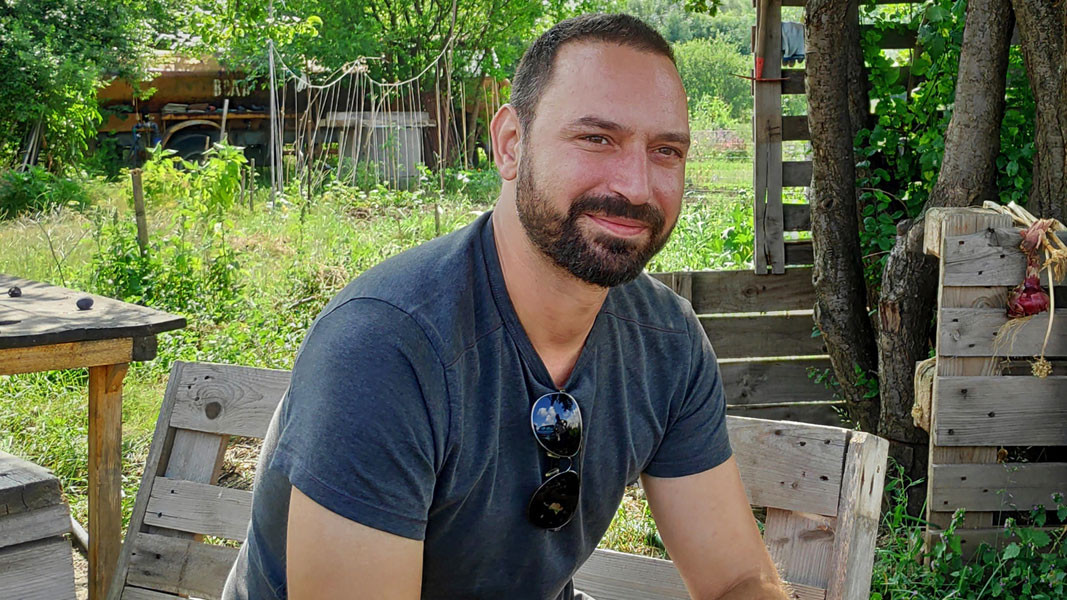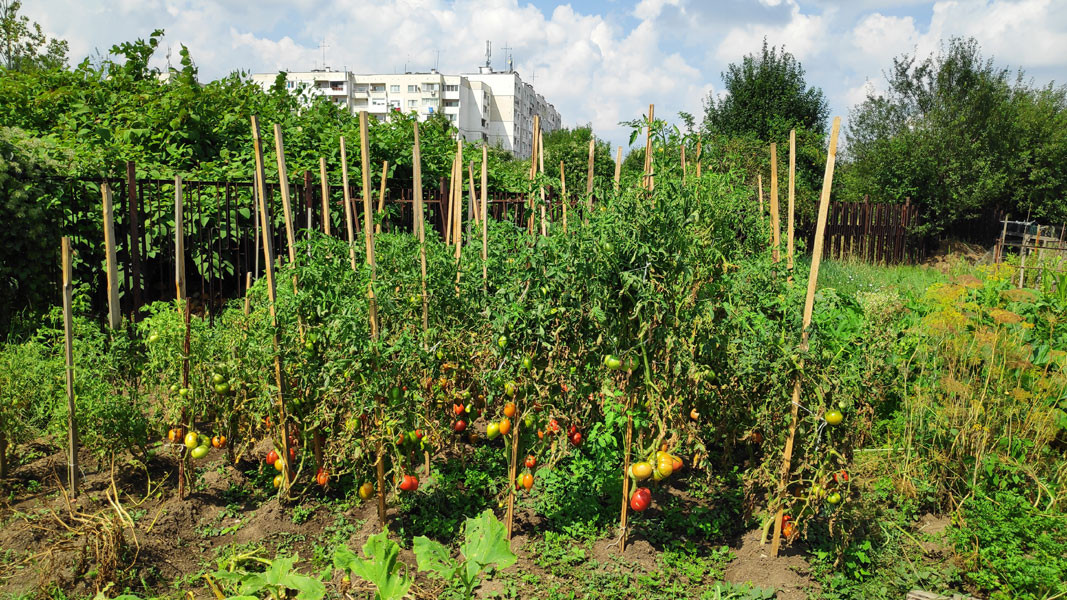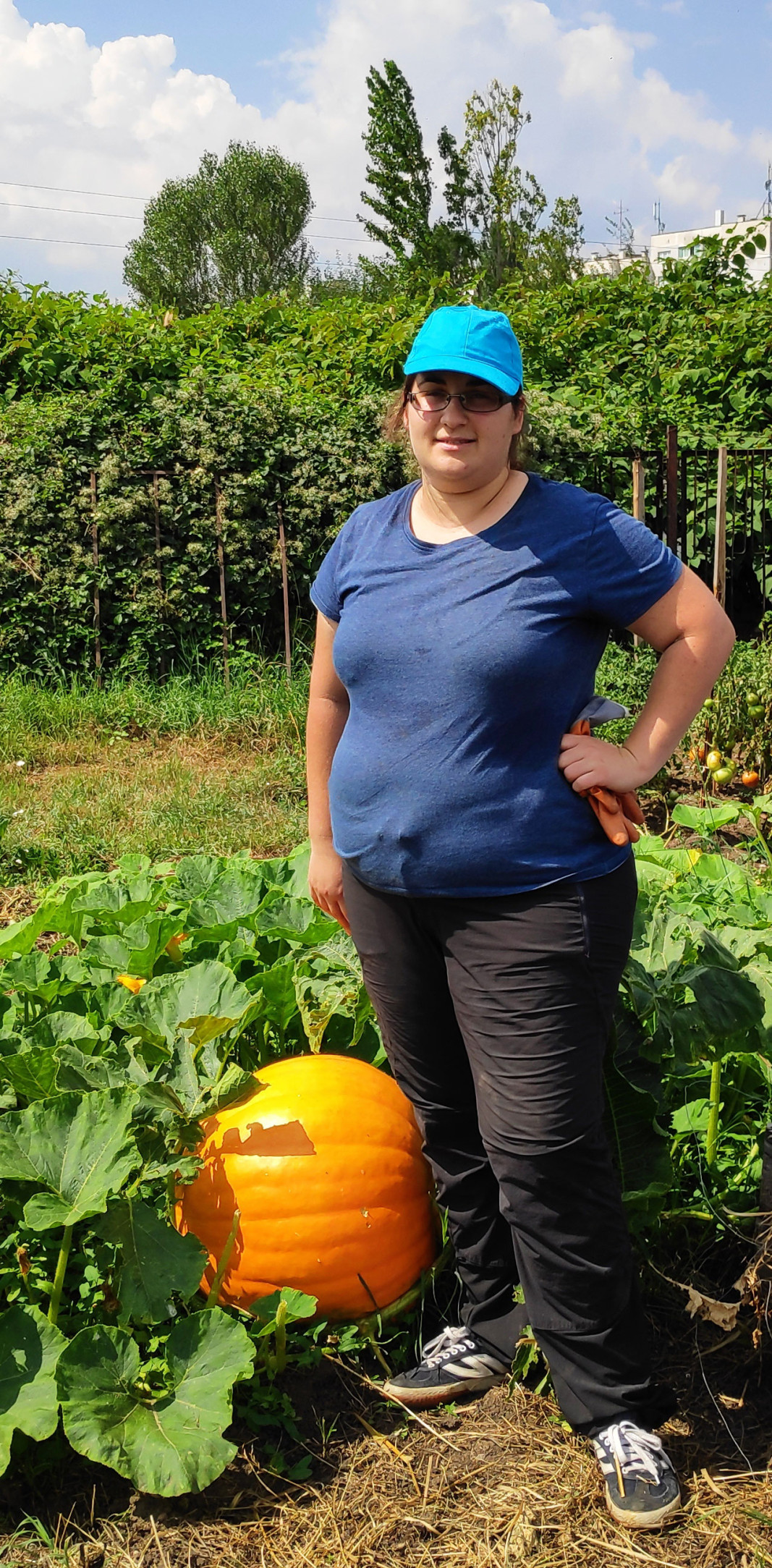Unrestricted freedom and people ready to experiment without being afraid of making mistakes – that is how, briefly, we can describe the sense of tranquility and harmony on the territory of the shared garden in the Sofia residential area Drouzhba.
The garden is close to one of the busiest road arteries and borders on warehouses and trading facilities in the city’s outskirts. Nonetheless it has developed into a small oasis where people are free to spend as much time as they like and get away from the hustle and bustle of the city. The name itself – shared “Gardens for Drouzhba” (Drouzhba being the name of a residential area, but also the word for friendship), transforms the very idea of this old housing development consisting of shabby pre-fab blocks of flats into a place for human bonding, for friendship and mutual assistance – things any modern Bulgarian craves.
“There is no commercial element in urban gardening – there is no profit except for the social capital, and in our modern society it is of utmost importance,” says Nikola Bonchev, a young man from Sofia, on whose initiative the garden was created.

“What is perhaps most important is that people come here and socialize on a plot of land which is free territory and which is set aside for their needs. Everyone is welcome – here you don’t have to consume, to spend money on anything, all you have to do is come along and get involved. Urban gardening is not about growing organic food, it has a social side to it which is difficult to develop in pure form in the city. It is a pleasure to welcome every newcomer to the garden. There are very few uncultivated plots of land left, but where there is a will there is a way. My own motive to organize this shared garden are the difficult and poor years I spent as a university student. When I returned to Bulgaria from Austria where I graduated I wanted to find some space to grow food for myself and for my family. And I found out there were no such gardens in Bulgaria. So I got in touch with a friend who suggested that I start working the land in the space inbetween the blocks of flats in Nadezhda residential area in Sofia. That was how it all started, with the help of 12 volunteers. Some of them are still with us and we are good friends. That was 7-8 years ago. In 2015 we were able to come to the plot we are now working in Drouzhba residential area. Soil specialists from the Bulgarian Academy of Sciences did us a big favour- they studied the soil composition. And it turned out that the soil was clean and very good for growing food. We are not out to compete with farmers who make a living out of farming. We till the land as a hobby, as a pleasant pastime.”

“To my immense joy, in Bulgaria we have unrestricted freedom which we don’t even know how to make use of,” says Nikola. He can see that his idea is being followed by other people in Sofia and that even though there are difficulties, the number of these gardens has been growing. Urban gardening helps people have faith in themselves – that they are capable of organizing their lives and making the important decisions themselves. At the “Gardens for Drouzhba” the number of gardeners will soon reach 50 and they all have a personal motive in coming here. Daniela Yordanova is 35 and she says this is a good place to experiment how to grow plants.
Urban gardening helps people have faith in themselves – that they are capable of organizing their lives and making the important decisions themselves. At the “Gardens for Drouzhba” the number of gardeners will soon reach 50 and they all have a personal motive in coming here. Daniela Yordanova is 35 and she says this is a good place to experiment how to grow plants.
“Here I found out about permaculture, about biodynamic agriculture. In time I will be living in a house with a garden and this is a good place to practice before I have a garden of my own. We have a parent cooperative and I cook for the children in it – courgettes, tomatoes and all kinds of vegetables I grow in the garden. I also bring my child with me when I am working in the garden. It is important that he sees where food comes from, it is a good thing to bond with the soil. It is such a pleasure to pick something from the garden and eat it – the feeling is incredible.”
Photos: private library
The Speaker of the National Assembly Natalia Kiselova will today award the winners of the 32nd Children's Easter Festival in the Serbian town of Bosilegrad. The children will compete in three categories – for the strongest, most beautiful and most..
A colorful Easter celebration under the slogan “Let’s sing and dance on Easter, on the square” will take place today in the open air in the town of Stara Zagora. A number of folklore groups and singers from the region will take care of the good..
Sugar artist Mariya Ozturk's latest masterpiece - a model of St Peter's Basilica in Rome - prompted us to reach out to our fellow Bulgarian during the bright holiday season. Though she’s been straddling life between Bulgaria and Istanbul for years, she..
International Labor Day on May 1 in the mass consciousness of Bulgarians is often associated with the period of socialism and the grandiose demonstrations..

+359 2 9336 661
